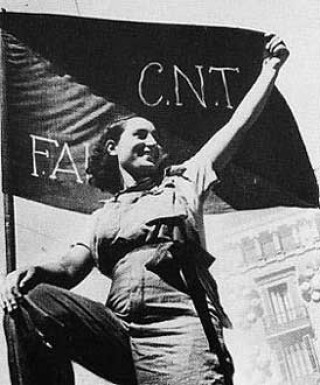Quackers
The Frog
You mean it was organised by the local government. Basically the state.
In Scotland, the parish was a democratic organisation, and far more effective for it. The Presbyterian model is surprisingly similar to the Orthodox Marxist vision of a Worker's State; not anarchistic, as such, but far from the hierarchical centralism of the Anglican or Catholic churches.You mean it was organised by the local government. Basically the state.
If you can't tell the difference, me explaining it to you is going to make no difference, either.Picture this Amadeus: You come to my house and tell me you can give me a cure for my fatal cancer but I have to have sex with you first, but I turn to you and tell you that unless you give me the cure now, I'm going to beat you to a pulp. How is one different from the other?
We'll refuse to cooperate with them. Guess who that hurts more.How do you treat people who refuse to co-operate with the syndicates/communes. Who hoard resources, make heiracachel organisations with other individuals and try and destroy the egalitarian "nice" syndicates.
Given that the process of transition to libertarian socialism consists entirely of dealing with these people- that it is, in fact, the entire point of anarcho-syndicalism- I'm not sure why you consider that to be some fatal, overlooked flaw.How do you treat people who refuse to co-operate with the syndicates/communes. Who hoard resources, make heiracachel organisations with other individuals and try and destroy the egalitarian "nice" syndicates.
If you can't tell the difference, me explaining it to you is going to make no difference, either.
Given that the process of transition to libertarian socialism consists entirely of dealing with these people- that it is, in fact, the entire point of anarcho-syndicalism- I'm not sure why you consider that to be some fatal, overlooked flaw.
We'll refuse to cooperate with them. Guess who that hurts more.
Anti-statist socialism, in essence; social anarchism is the most well-known strain(s), although others exist.I'm not familiar with libertarian socialism.
That depends on whether or not they are actually engaged in revolutionary activity. Not all radical socialists are Leninists, after all.How do they deal with the counter-revolutionarries?
...Pardon?Then it isn't collectivist-anarchy it is genuine anarchy.

Nobody ever suggested that anarchism- or any form of socialism, for that matter- had to be universal or uniform.If organisations exist which are not syndicates then it is a pluralist anarchy not the pure-strain socialist only type anarchy.
Convince their workers to abandon them, convince consumers to boycott them, convince suppliers and distributors to refuse to deal with them. Syndicalism, in essence.I want to know how you deal with people who don't co-operate with syndicates and who form organisations opposed to your socialist goals - lets say, based on profit?
Where are they going to get the means to hire a private army?What happens if the profiteers hire a private military army and crush the syndicates then form a state.
How do you deal with that?
What happens if the profiteers hire a private military army and crush the syndicates then form a state.
How do you deal with that?


I think that a lot of that came down to the fact that those Anarchists were in the Kropotkinite strain, and so lacked a proper understanding of class or of capitalist society, and so the ability to make any meaningful moves towards class conciousness and so an effective socialist society. (Also, that their Anarchism was often a bit half-formed, containing as much of a peasant "clubmen" mentality as a true revolutionary one.)QUESTION:
One of the biggest problems of anarchist movements in the Russian Civil War was the unwillingness to cooperate with one another. Makhnovshchina, for example, fought and ruthlessly suppressed other anarchist communes. The Siberian communes failed to cooperate in any meaningful way, either against the Whites or the Reds, and thus were taken apart piecemeal by both sides. In what way do anarchists think their ideology, when put into practice, will not devolve into feudalism and regionalism, with communes warring against one another, or being conquered piecemeal because of their inability, unwillingness, or indifference towards inter-communal cooperation?
I would imagine Britain is probably the most classist society in the world - you can distinguise a man's class based on his accent - so why has far-left ideas comprehensively failed in the UK?
